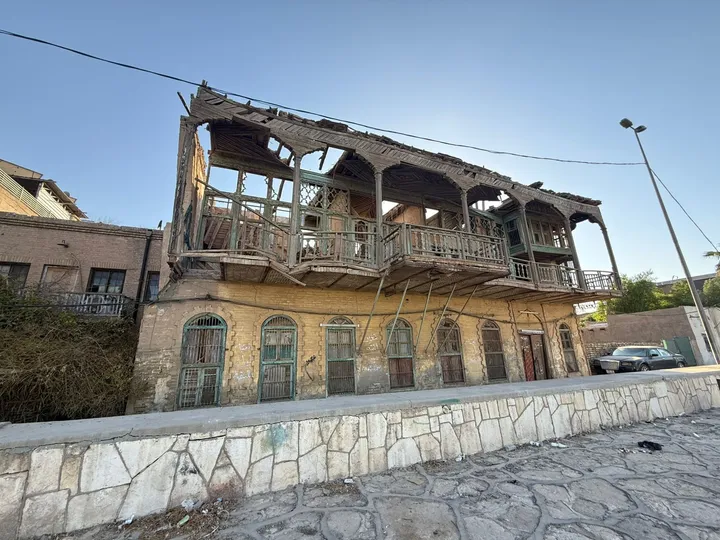A BBC journalist used deceit to win a sensational 1995 interview with Princess Diana in which she disclosed intimate details of her failed marriage to Prince Charles, and the broadcaster covered up the deception, an independent investigation found.
The BBC appointed the retired senior judge John Dyson in November to lead the investigation after Diana’s brother, Charles Spencer, made renewed complaints that journalist Martin Bashir used false documents and other dishonest tactics to persuade Diana to agree to the interview.
Dyson said Bashir commissioned fake bank statements that falsely suggested some of Diana's closest aides were being paid by the security services to keep tabs on her.
Bashir then showed them to Diana's brother Charles Spencer, in a successful bid to convince him to arrange a meeting between himself and Diana and earn her trust.
"By behaving as described... Mr Bashir acted inappropriately and in serious breach" of the corporation's own editorial guidelines on "straight dealing," Dyson added.
Questions have long been asked about how Bashir convinced Diana to talk on the BBC's flagship "Panorama" programme in November 1995, which was watched by a record 22.8 million people and won a string of television awards.
In it she famously said "there were three people" in her marriage – her, Charles and his long-time mistress and now wife, Camilla Parker-Bowles – and also admitted adultery.
Bashir, now 58, was little-known at the time of the interview but went on to have a high-profile career on US television networks, and interviewed stars such as Michael Jackson.
He returned to work for the corporation as religion editor until he stepped down last week, citing ill health, just hours before Dyson's report was submitted to BBC bosses.
READ MORE:World commemorates 20th anniversary of Diana's death
'Flawed and ineffective'
A 1996 internal inquiry by future BBC chief Tony Hall and another senior figure, Anne Sloman, cleared Bashir of wrong-doing.
But Dyson called that probe "flawed and woefully ineffective".
In particular, it did not ask Diana's brother, Charles Spencer, for his version of events, Dyson said, lambasting it for failing to scrutinise Bashir's actions properly.
"If they had been able to test Mr Bashir's account by asking him to comment on Earl Spencer's detailed account, it is very unlikely that they would have believed him and concluded that he was an 'honest and an honourable man'," he wrote.
Hall, now chair of the board of trustees at Britain's National Gallery, admitted that the probe "fell well short of what was required", and said he was "wrong to give Martin Bashir the benefit of the doubt".
READ MORE: Meghan and Harry open up about royal split in Oprah interview
BBC offers full apology
The Daily Telegraph earlier suggested the report's findings were comparable to phone-hacking revelations at Britain's News of the World tabloid, which forced its closure.
Diana's friend, Simone Simmons, told The Sun that the interview had "destroyed her pyschologically" and "made her paranoid."
BBC director-general Tim Davie said the corporation accepted Dyson's findings completely, and offered a "full and unconditional apology."
The broadcaster also said it was handing back the awards the programme won for the interview.
Bashir also apologised, saying the faking of the bank statements was "a stupid thing do and was an action I deeply regret."
But he maintained it had "no bearing whatsoever on the personal choice by Princess Diana to take part," and he was still "immensely proud" of the interview.
'Rogue reporter'
Davie equally said the princess was "keen on the idea of an interview with the BBC."
Her estranged husband had spoken to commercial channel ITV in 1994, and also admitted adultery.
But he added: "It is clear that the process for securing the interview fell far short of what audiences have a right to expect. We are very sorry for this."
"Clear failings" had been identified, he added, but said the BBC now had "significantly better processes and procedures" than at the time.
"The BBC should have made greater effort to get to the bottom of what happened at the time and been more transparent about what it knew," Davie added.
John Birt, director-general of the corporation at the time of the interview, said in a statement: "We now know that the BBC harboured a rogue reporter".
Diana and Charles formally divorced in 1996. She died aged 36 in a high-speed car crash while being chased by paparazzi photographers in Paris the following year. Charles married Camilla in 2005.
William, Harry condemn BBC over interview
Prince William and his brother Prince Harry on Thursday issued strongly worded statements criticising the BBC and British media for unethical practices.
In his statement, William, 38, said the BBC's failures contributed to the deterioration of his parents' marriage and worsened Diana's feelings of paranoia.
“The interview was a major contribution to making my parents’ relationship worse and has since hurt countless others,” he said.
“It brings indescribable sadness to know that the BBC’s failures contributed significantly to her fear, paranoia and isolation that I remember from those final years with her.”
William alleged that “the deceitful way the interview was obtained substantially influenced what my mother said." He went on to say that Diana “would have known that she had been deceived” had the BBC properly investigated the concerns first raised in 1995.
Harry, meanwhile, said the issue was bigger than just the BBC – and that “the ripple effect of a culture of exploitation and unethical practices ultimately took her life.”
“To those who have taken some form of accountability, thank you for owning it.
That is the first step toward justice and truth,” he wrote. “Yet what deeply concerns me is that practices like these – and even worse – are still widespread today.”
























